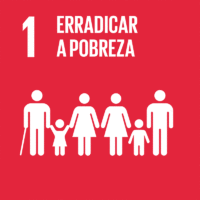Ciência_Iscte
Publicações
Descrição Detalhada da Publicação
Third-party signals in crowdfunded microfinance: Which microfinance institutions boost crowdfunding among refugee entrepreneurs?
Título Revista
Small Business Economics
Ano (publicação definitiva)
2023
Língua
Inglês
País
Reino Unido
Mais Informação
Web of Science®
Scopus
Google Scholar
Abstract/Resumo
Despite the relevance of crowdfunding as a financing tool for underrepresented entrepreneurs, prior research pays scant attention to the funding gap for refugee entrepreneurs. Using a composite framework that integrates both entrepreneurship research and signalling theory, the current study investigates how microfinance institutions (MFIs) and refugee entrepreneurs can deploy signals to pursue entrepreneurial opportunities on digital platforms. The results, based on refugee data pertaining to 5615 loans on Kiva during 2015–2018, reveal that when refugee loan campaigns are affiliated with an MFI that itself features lower default rates, achieves high profitability, adopts an entrepreneurial support orientation, operates transnationally and is digitally focused, the campaign achieves better crowdfunding performance outcomes than refugees campaigns affiliated with an MFI that lacks these features. These findings provide clear evidence that when MFIs offer reputational signals, visible to the crowd of lenders, it can increase entrepreneurial financing and democratize resource acquisition among financially excluded refugee entrepreneurs.
Plain English Summary
Can microfinance institutions boost crowdfunding among refugee entrepreneurs and their small businesses? Yes, they can. Third-party signals may support growth in alternative finance for #refugees. While research on entrepreneurship has largely targeted immigrant entrepreneurs, the refugee context has been neglected, namely how refugee entrepreneurs fund their economic activities. With signalling literature on new venture financing of entrepreneurship being greatly fragmented, we contribute to the understanding of how crowdfunding microfinance boost venture financing of refugees. We study the gain of legitimacy by refugee entrepreneurs displayed through reputational signals intertwined with the reputation of microfinance institutions (MFI). Our results reveal higher success in funding outcomes when the loan campaign is linked with microfinance institutions with lower loan default rates, higher profitability, driven by entrepreneurial support, operating internationally and with a digital presence, compared with MFI that lacks these features. Our work has relevant implications for underrepresented refugee entrepreneurs, crowdfunding actors, policymakers and scholars. Our findings indicate that the affiliation between refugees-microfinance institutions creates certain reputational signals which enhance entrepreneurial finance and shape conditions for societal integration in the host country. For crowdfunding platforms, we show that to develop an effective, self-perpetuating entrepreneurial ecosystem, they should work to build their reputation among lenders, by capitalizing on and making third-party signals more readily available. At the same time, they must conduct due diligence to assess and monitor MFIs’ behaviour. Policy makers are recommended to build up on this digital microfinance experience to enhance new venturing finance refugee programs. We, thus, extend prior findings about the importance of third-party affiliations by establishing a composite framework of third-party signals in the context of new venture financing for financially excluded communities, and refugees in particular. Accordingly, for scholars, we offer cross-disciplinary insights into which characteristics of intermediaries can facilitate links between the supply (crowd of lenders) and demand (refugee entrepreneurs) sides in prosocial crowdfunding.
Agradecimentos/Acknowledgements
Open access funding provided by FCT|FCCN (b-on). This work has been funded by FCT - Fundação para a Ciência e a Tecnologia, I.P., Projects: PTDC/PTDC/EGE-OGE/31246/2017, UIDB/ 04630/2020, UIDB/00315/2020, UIDB/05037/2020, and UIDB/04105/2020.
Palavras-chave
Crowdfunding,Entrepreneurship,Microfnance,Refugees,Third-party signals
Classificação Fields of Science and Technology
- Economia e Gestão - Ciências Sociais
Registos de financiamentos
| Referência de financiamento | Entidade Financiadora |
|---|---|
| UIDB/04630/2020 | Fundação para a Ciência e a Tecnologia |
| UIDB/05037/2020 | Fundação para a Ciência e a Tecnologia |
| UIDB/04105/2020 | Fundação para a Ciência e a Tecnologia |
| UIDB/00315/2020 | Fundação para a Ciência e a Tecnologia |
| PTDC/PTDC/EGE-OGE/31246/2017 | Fundação para a Ciência e a Tecnologia |
Contribuições para os Objetivos do Desenvolvimento Sustentável das Nações Unidas
Com o objetivo de aumentar a investigação direcionada para o cumprimento dos Objetivos do Desenvolvimento Sustentável para 2030 das Nações Unidas, é disponibilizada no Ciência_Iscte a possibilidade de associação, quando aplicável, dos artigos científicos aos Objetivos do Desenvolvimento Sustentável. Estes são os Objetivos do Desenvolvimento Sustentável identificados pelo(s) autor(es) para esta publicação. Para uma informação detalhada dos Objetivos do Desenvolvimento Sustentável, clique aqui.

 English
English




